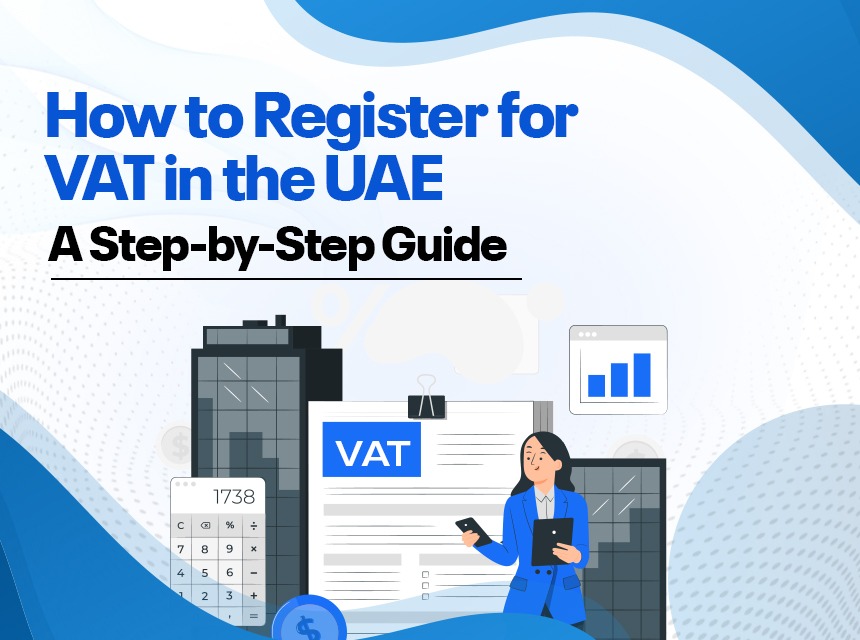
Decoding VAT Registration in the UAE: Step by Step Guide
VAT Registration in UAE?
Value-added tax (VAT) is a consumption tax that is applied to most goods and services sold in the UAE. It was introduced in 2018, and all businesses with an annual turnover exceeding AED 375,000 are required to register for VAT.
VAT registration can be a daunting process, but it is important to understand the requirements and benefits of registration. This blog post will provide you with a comprehensive overview of VAT registration in the UAE.
Who Needs To Register For VAT?
The following businesses are required to register for VAT in the UAE:
- Businesses with an annual turnover exceeding AED 375,000
- Businesses that make taxable supplies to non-UAE customers
- Businesses that import goods into the UAE
In 2023, there have been a few changes to the VAT registration requirements in the UAE. For example, businesses that make zero-rated supplies are now required to register for VAT if their annual turnover exceeds AED 187,500.
Zero-rated supplies are supplies that are not subject to VAT, such as exports and certain healthcare and education services. However, businesses that make zero-rated supplies are still required to register for VAT if they want to claim a refund of the input tax that they pay on their business expenses.
Understanding Registration Thresholds
Mandatory Registration
A business is obligated to register for VAT if its taxable supplies and imports surpass the mandatory threshold of AED 375,000 over the previous 12 months. Additionally, if a business foresees that its taxable supplies and imports will exceed this threshold in the next 30 days, registration is compulsory. It's important to note that this threshold does not apply to foreign businesses.
Voluntary Registration
Businesses that do not meet the mandatory registration criteria can still opt for voluntary registration. This option is available if the total value of taxable supplies and imports, or taxable expenses, exceeded AED 187,500 in the previous 12 months. Likewise, if a business anticipates surpassing this threshold in the next 30 days, voluntary registration is an option.
"VAT Registration Guide"
Guide for VAT Registration in UAE [VAT Registration Guide]
The VAT Registration Process In The UAE
The VAT registration process in the UAE is relatively straightforward. To register, you will need to:
- Create an account on the FTA website.
- Complete the VAT registration form and submit it to the FTA.
- Pay the VAT registration fee.
- Provide the FTA with supporting documentation, such as your business license and financial statements.
The benefits of VAT registration
There are several benefits to registering for VAT in the UAE, including:
Increased credibility: VAT registration shows that your business is legitimate and compliant with UAE tax laws.
Reduced costs: VAT can help you to reduce your costs by offsetting the input tax that you pay on your business expenses.
Improved cash flow: VAT payments can be deferred until you submit your VAT returns.
Increased competitiveness: VAT can help you to be more competitive by offering your customers a lower price on goods and services.
Common VAT registration mistakes to avoid
Here are some common VAT registration mistakes to avoid:
- Delaying registration: It is important to register for VAT as soon as your turnover exceeds the registration threshold. Failure to register for VAT can result in penalties.
- Getting the wrong VAT registration type: There are two types of VAT registration in the UAE: standard VAT accounting and simplified VAT accounting. It is important to choose the correct VAT registration type for your business.
- Not collecting VAT from customers: Businesses are required to collect VAT from their customers and remit it to the FTA on a monthly basis. Failure to collect VAT from customers can result in penalties.
Not filing VAT returns on time: Businesses are required to file VAT returns on a quarterly basis. Failure to file VAT returns on time can result in penalties.
Conclusion
VAT registration can be a complex process, but it is important for businesses in the UAE to understand their VAT obligations and register for VAT if required. By following the tips in this




